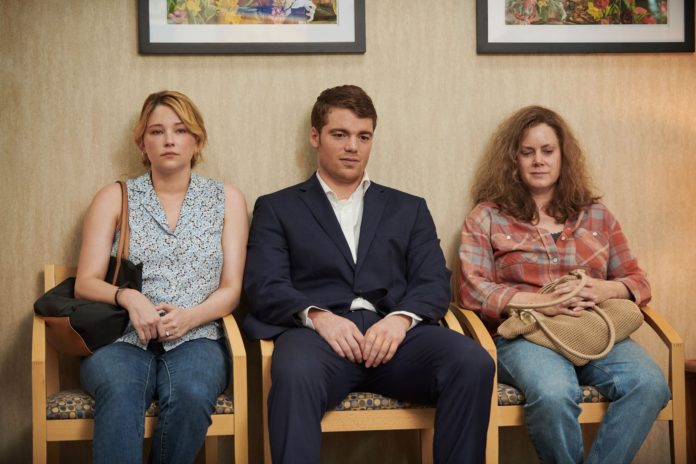

I’ve been a fan of the book Hillbilly Elegy by J.D Vance for a couple of years. The book hit home for me in many ways. I was raised in sometimes chaotic situations and now I’m trying to navigate my way through the world of academia. And as someone who watched my father struggle with addiction for most of his life, I felt Hillbilly Elegy painted an accurate picture of what that type of lifestyle feels like.
The book’s been criticized for doing things like trying to justify Trump supporters and enforcing stereotypes around Appalachia people. But the book and its criticism is a story for another day. The movie focused much more on one family than just the divided politics of America.
With a whopping critic score of 25 per cent on Rotten Tomatoes, I was nervous when the movie began, worried the high hopes I had for this film would be crushed within moments. It wasn’t.
Hillbilly Elegy bounces back and forth between Vance’s troubled family past and a current-day scenario where he drives home to Ohio from Yale Law School to help his mother after an overdose. The story is based largely on Vance trying to make a better future for himself while trying to balance the responsibility he still has to his family, to take care of them anyway he can. To these folks and many lower-class people in North America, family and community are everything.
There’s a chaotic feeling draping itself over the entire movie. I felt anxious while Vance wandered around a lavish dinner party trying to woo potential employers in a world so different from his, he didn’t even know there was more than one type of white wine. I felt stressed as every moment of calm in Vance’s past was disturbed by a family or neighbourhood dispute. But I also felt at home by the familiarity of chaos.
The movie features stunning visuals, amazing acting and the perfect actor chosen to play Mamaw, who is a central figure to Vance’s success.
Anyone who looks at Hillbilly Elegy and scoffs, anyone who says it reinforces inaccurate stereotypes or has nothing to teach is so disconnected from the film, they never had a chance at understanding.
This movie captures what that chaotic lifestyle was like almost perfectly. It’s in the details as simple as washing plastic cutlery to save for the next dysfunctional family barbeque or when Mamaw answers the door while smoking a cigarette to accept a Meals on Wheels delivery because she can’t afford groceries. Another situation that shows this is when Vance defends his mother’s abusive behaviour, which many critics find appalling, but anyone in that situation would do the same. People who didn’t grow up in that world have no right to classify these as stereotypes. This is reality.
Vance remains conflicted throughout the movie. He offers to max out his credit cards to check his mother into rehab even though he can barely afford tuition. He’s unsure if he’ll make it back to Yale in time for an interview at a prestigious law firm because family comes first. He struggles to succeed while also staying loyal to his family. He sees a path to a better life but knows it’s not a simple one.
Hillbilly Elegy is a retelling of a story that people don’t seem to find remarkable. But it is. Vance managed to escape what could have been a continued downward spiral. His story isn’t unique, but it helps people who come from similar backgrounds feel more connected as they stumble through all these issues.
It’s good for people who come from different backgrounds to hear stories like these so they feel like they aren’t unique. It may feel like you’re alone, but many stories like Vance’s exist. We just don’t tend to draw attention to them.
You’re allowed to disagree with his politics or find the movie boring, but you’re not allowed to criticize the re-telling of his story. It’s his story and an important one to tell.
